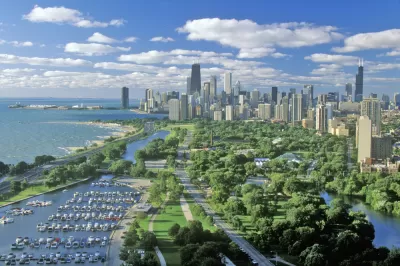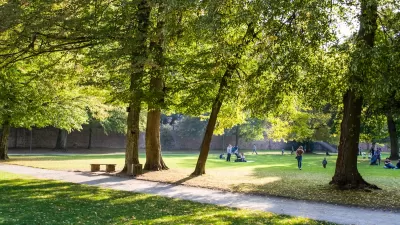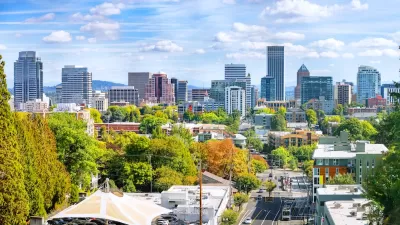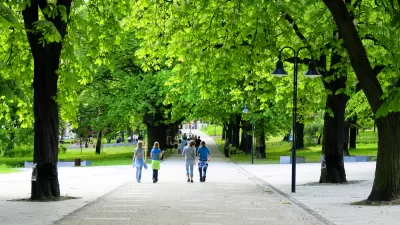Results of a new survey suggest that there are benefits to be reaped from a focus on climate change.

According to a new report published by Natural Areas Conservancy, the Trust for Public Land, and Yale School of Forestry and Environmental Studies, forestry professionals could benefit greatly from more information about climate change, among other topics. The survey, reports Amanda Kolson Hurley, "represented 125 organizations in 110 cities."
"Societal issues such as green-space access and the urban heat-island effect often aren't integrated into management of urban forests," details Hurley. "Forest managers need more data on climate change, pests, and other factors. They need more funding. And they spend much of their time dealing with invasive species and trash."
When asked about factors in decision making, 61 percent of survey respondents cited conservation of native species as one of the top three factors they consider. "By contrast, climate-change projections and the urban heat-island effect were not considered at all by large shares of respondents (47 and 53 percent, respectively)."
So, could more pertinent data on climate change effect the work of forest managers? Not dramatically or instantly, says Hurley. "Even forest managers who have robust information may not be able to act on it as much as they'd like, because they're so busy removing trash and fighting invasive species such as honeysuckle and kudzu. Those activities leave less time for practices like soil amendment, which improves soil and plant health."
Recommendations from the report's organizers include improving access to urban forests among low-income communities, prioritizing forest safety, including forestry management in urban resiliency planning, and nation-wide budget increases for urban forestry management.
FULL STORY: America's Management of Urban Forests Has Room for Improvement

Study: Maui’s Plan to Convert Vacation Rentals to Long-Term Housing Could Cause Nearly $1 Billion Economic Loss
The plan would reduce visitor accommodation by 25,% resulting in 1,900 jobs lost.

Placekeeping: Setting a New Precedent for City Planners
How a preservation-based approach to redevelopment and urban design can prevent displacement and honor legacy communities.

Using Old Oil and Gas Wells for Green Energy Storage
Penn State researchers have found that repurposing abandoned oil and gas wells for geothermal-assisted compressed-air energy storage can boost efficiency, reduce environmental risks, and support clean energy and job transitions.

Washington State Plans Ambitious ‘Cycle Highway’ Network
The state is directing funding to close gaps in its existing bike network and make long-distance trips more accessible.

Homeowners Blame PG&E for Delays in ADU Permits
The utility says it has dramatically reduced its backlog, but applicants say they still face months-long delays for approvals for new electrical work.

Rethinking Wildfire Defense: How a Landscape Approach Can Protect Neighborhoods
Post-fire analysis of the Eaton Fire reveals that a landscape approach — including fire-resistant vegetation, home hardening, and strategic planning — can help reduce wildfire risk, challenging assumptions that trees and plants are primary fire hazards.
Urban Design for Planners 1: Software Tools
This six-course series explores essential urban design concepts using open source software and equips planners with the tools they need to participate fully in the urban design process.
Planning for Universal Design
Learn the tools for implementing Universal Design in planning regulations.
Borough of Carlisle
Caltrans
Heyer Gruel & Associates PA
Institute for Housing and Urban Development Studies (IHS)
City of Grandview
Harvard GSD Executive Education
Salt Lake City
NYU Wagner Graduate School of Public Service
City of Cambridge, Maryland





























